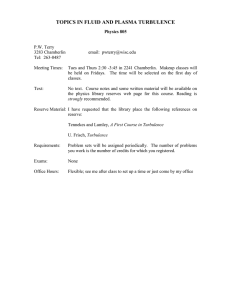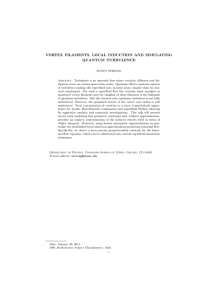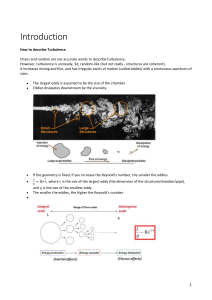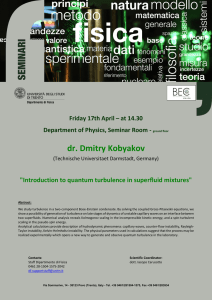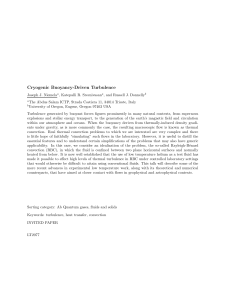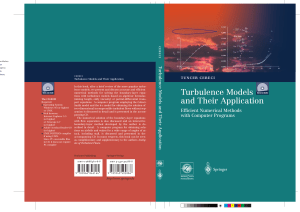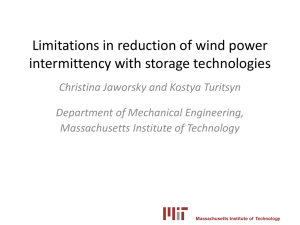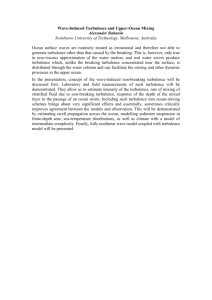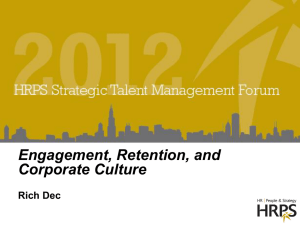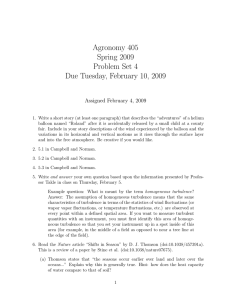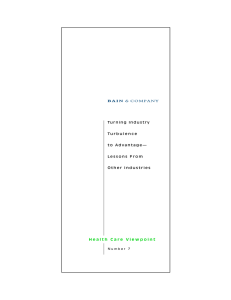Superfluid Turbulence and Chaos
advertisement
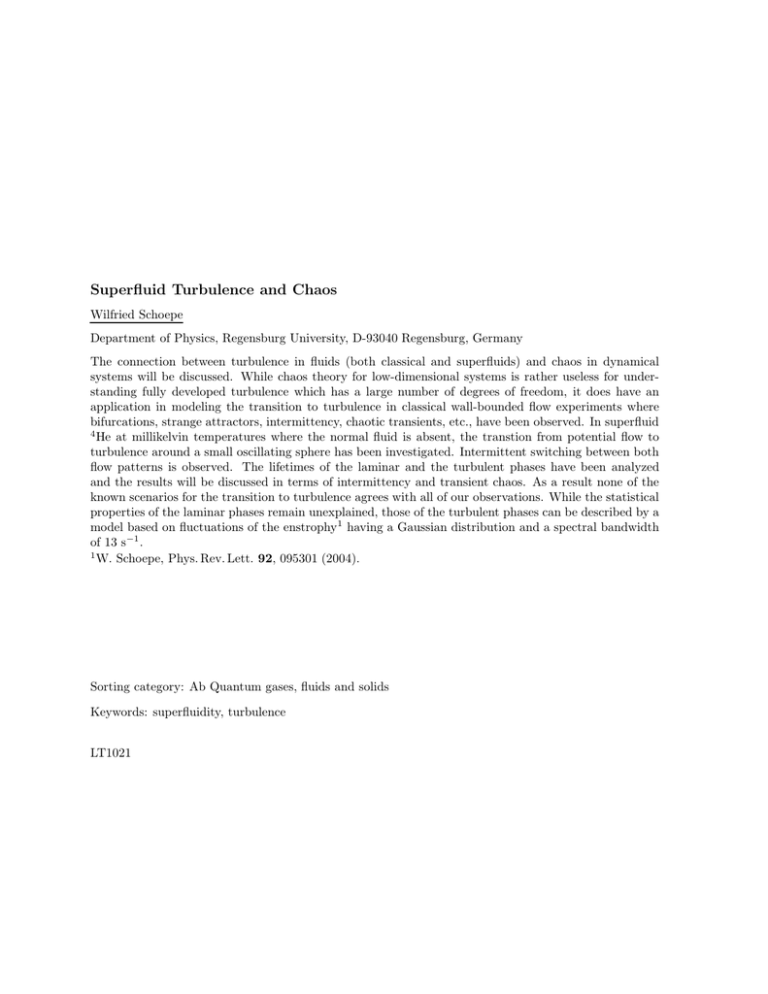
Superfluid Turbulence and Chaos Wilfried Schoepe Department of Physics, Regensburg University, D-93040 Regensburg, Germany The connection between turbulence in fluids (both classical and superfluids) and chaos in dynamical systems will be discussed. While chaos theory for low-dimensional systems is rather useless for understanding fully developed turbulence which has a large number of degrees of freedom, it does have an application in modeling the transition to turbulence in classical wall-bounded flow experiments where bifurcations, strange attractors, intermittency, chaotic transients, etc., have been observed. In superfluid 4 He at millikelvin temperatures where the normal fluid is absent, the transtion from potential flow to turbulence around a small oscillating sphere has been investigated. Intermittent switching between both flow patterns is observed. The lifetimes of the laminar and the turbulent phases have been analyzed and the results will be discussed in terms of intermittency and transient chaos. As a result none of the known scenarios for the transition to turbulence agrees with all of our observations. While the statistical properties of the laminar phases remain unexplained, those of the turbulent phases can be described by a model based on fluctuations of the enstrophy1 having a Gaussian distribution and a spectral bandwidth of 13 s−1 . 1 W. Schoepe, Phys. Rev. Lett. 92, 095301 (2004). Sorting category: Ab Quantum gases, fluids and solids Keywords: superfluidity, turbulence LT1021
